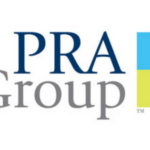A Court of Appeals in Maryland has overturned a lower court’s ruling that trusts and investors involved in mortgages do not need a collection agency license in the state in order to operate.
The ruling was made as a result of four consolidated cases at the Circuit Court level, in which the courts ruled that foreign trusts acting as a repository for defaulted mortgages debts were required to obtain a collection agency license in Maryland under the Maryland Collection Agency Licensing Act before a trustee could file a foreclosure action on a property in the state. The Circuit Court rulings had caused foreclosure activity in Maryland to grind to a halt in the past year, according to a published report.
A copy of the ruling in Kyle Blackstone v. Dinesh Sharma; Terrance Shanahan v. Seyed Marvastian; Laura O’Sullivan v. Jeffrey Altenburg; and Martin Goldberg v. Martha Neviaser, can be accessed by clicking here.
The plaintiffs contended that the trustees of the loans were acting as collection agencies, as defined by the state law, when attempting to foreclose on the properties in question. In reaching its decision, the Appeals Court attempted to determine whether the Maryland state legislature “intend to require foreign statutory trusts, one of the entities in the mortgage industry, to obtain a collection agency license pursuant to” the state collection agency law?
Maryland’s state collection agency licensing law was originally enacted in 1977 and updated in 2007 to re-define what constitutes a “collection agency” under the law. The definition was updated “to include a person who engages directly or indirectly in the business of ‘collecting a consumer claim the person owns, if the claim was in default when the person acquired it.'”
The way in which the mortgage process worked, the trusts and investors became involved in collecting on the unpaid mortgages when the loans went into default. As such, the plaintiffs argued, that requires them to obtain a collection agency license in order to operate.
Because the updated definition was intended to regulate collection agencies that were exploiting a loophole in the law by purchasing the defaulted debt from their clients and then attempting to collect on it, instead of having the account placed with the collection agency on a contingency basis, the Appeals Court ruled that the law does not apply to foreign trusts or investors.
“…this Court holds that the General Assembly did not intend for foreign statutory trusts to obtain a collection agency license under MCALA before its substitute trustees file a foreclosure action in circuit court. Pursuant to our legislative intent analysis, we conclude that foreign statutory trusts are outside of the scope of the collection agency industry regulated and licensed under MCALA,” the Appeals Court ruled.








